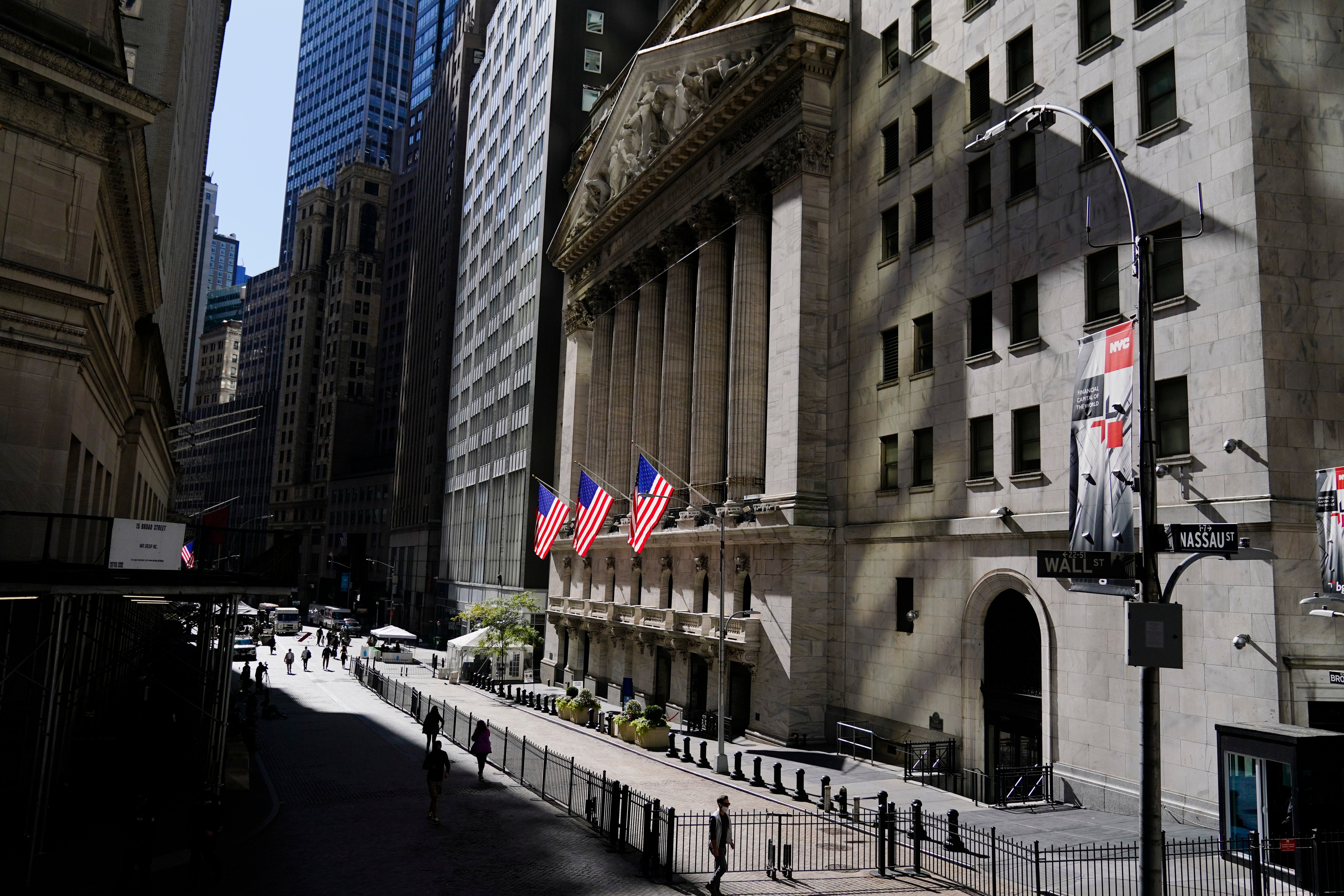Asian stocks follow Wall Street lower on lack of US aid plan
Asian stocks are following Wall Street lower as investors watch for signs of progress in negotiations over a U.S. economic aid plan

Your support helps us to tell the story
From reproductive rights to climate change to Big Tech, The Independent is on the ground when the story is developing. Whether it's investigating the financials of Elon Musk's pro-Trump PAC or producing our latest documentary, 'The A Word', which shines a light on the American women fighting for reproductive rights, we know how important it is to parse out the facts from the messaging.
At such a critical moment in US history, we need reporters on the ground. Your donation allows us to keep sending journalists to speak to both sides of the story.
The Independent is trusted by Americans across the entire political spectrum. And unlike many other quality news outlets, we choose not to lock Americans out of our reporting and analysis with paywalls. We believe quality journalism should be available to everyone, paid for by those who can afford it.
Your support makes all the difference.Asian stocks followed Wall Street lower on Thursday as investors watched Washington for signs of whether political leaders can agree on an economic aid plan in the two weeks before the Nov. 3 presidential election.
Market benchmarks in Shanghai, Tokyo, Hong Kong and Seoul retreated.
On Wall Street, the benchmark S&P 500 index lost 0.2% on Wednesday as U.S. political leaders wrangled over economic aid following the expiration of extra unemployment benefits that propped up consumer spending. Democrats are pressing President Donald Trump's Republicans to expand a proposed package.
The speaker of the House of Representatives, Nancy Pelosi, said she made progress in talks with the White House. But a potential agreement might face opposition in the Senate, where Majority Leader Mitch McConnell told fellow Republicans he warned the White House not to seal a relief deal before the election.
“Fiscal stimulus deal optimism has faded,” said Mizuho Bank in a report.
The Shanghai Composite Index lost 0.7% to 3,302.55 and the Nikkei 225 in Tokyo shed 0.6% to 23,489.51. The Hang Seng in Hong Kong retreated 0.1% to 24,719.12.
The Kospi in Seoul was 0.7% lower at 2,353.28 and Sydney's S&P-ASX 200 declined 0.3% to 6,173.80.
India's Sensex opened down 0.2% at 40,623.74. New Zealand, Singapore and Jakarta also retreated while Bangkok advanced.
Markets are swinging between optimism about possible development of a coronavirus vaccine and uncertainty about the U.S. economic outlook without an aid package.
On Wall Street, the S&P 500 declined to 3,435.56. The Dow Jones Industrial Average lost 0.4%. The Nasdaq composite gave up 0.3% to 11,484.69.
Industrial and health care stocks declined. Communications services gained. Social media stocks rose after the photo service Snap reported bigger gains in revenue and users than expected.
Google’s parent company rose 2.3%, adding to its gains from a day before when the Justice Department sued it for antitrust violations. Investors had already been expecting such action, and analysts said Google’s counterarguments mean it will likely take years to reach a resolution.
In energy markets, benchmark U.S. crude lost 26 cents to $39.77 per barrel in electronic trading on the New York Mercantile Exchange. On Wednesday, the contract fell $1.67 cents to $40.03 a barrel Wednesday. Brent crude, the price standard for international oils, shed 24 cents to $41.49 per barrel in London. The contract declined $1.43 the previous session to $41.73 a barrel.
The dollar gained to 104.67 Japanese yen from Wednesday's 104.54 yen. The euro declined to $1.1850 from $1.1862.